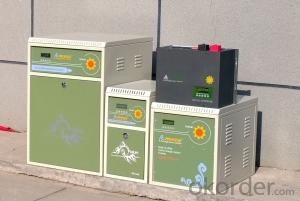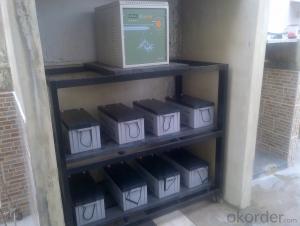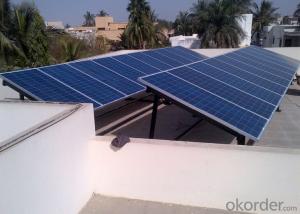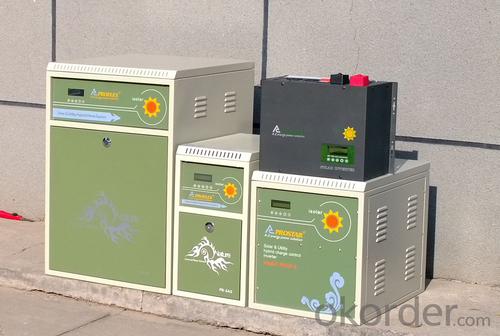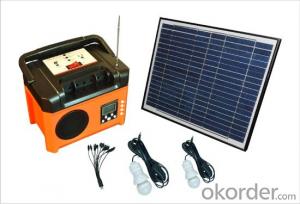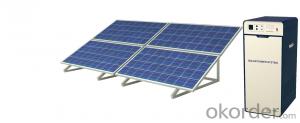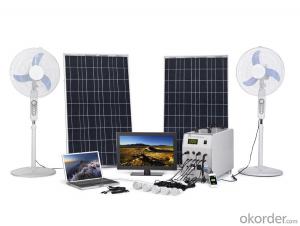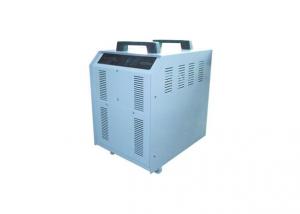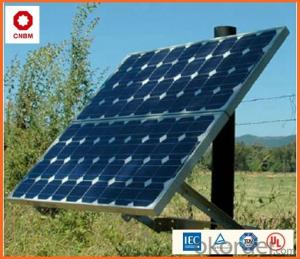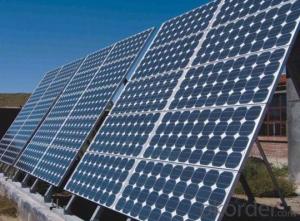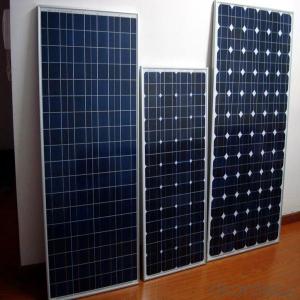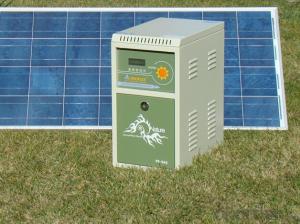150W Solar Panel Off Grid Sun Power System - Solar Energy Systems Canada
- Loading Port:
- Tianjin
- Payment Terms:
- TT OR LC
- Min Order Qty:
- 10 unit
- Supply Capability:
- 10000 unit/month
OKorder Service Pledge
OKorder Financial Service
You Might Also Like
Specification
AC solar power system consists of solar batteries, solar controller, battery, inverter components.
Used to solve rural or remote areas without electricity, such as highland, island, pastoral, villas, border posts and other military and civilian life electricity.
Daily use reference
TV 70W x 4 hours
Lighting 30W x 6 hours
Fan 50W x 6 hours
Laptop 60W x 2 hours
Total loading power: 210W
Total power consumption per day: 880Wh (0.88kWh/day)
Warranty
provides a 1~3 year limited warranty (“Warranty”) against defects in materials and workmanship for its Uninterruptible power supply, Power inverter/chargers, Solar charge controllers, Battery Products (“Product”).
The term of this Warranty begins on the Product(s) initial purchase date, or the date of receipt of the Product(s) by the end user, whichever is later. This must be indicated on the invoice, bill of sale, and/or warranty registration card submitted to us. This Warranty applies to the original MUST-Solar Product purchaser, and is transferable only if the Product remains installed in the original use location.
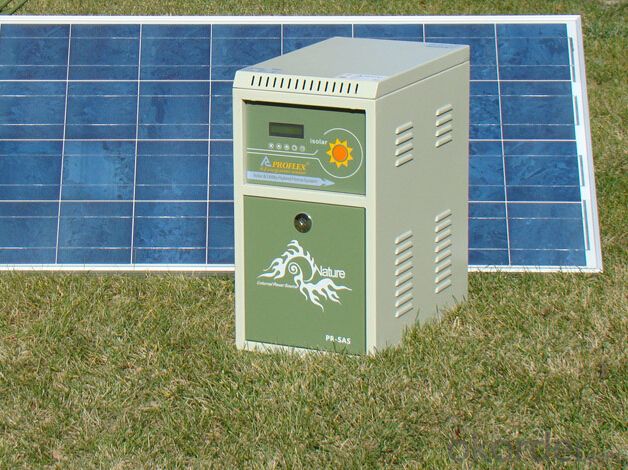
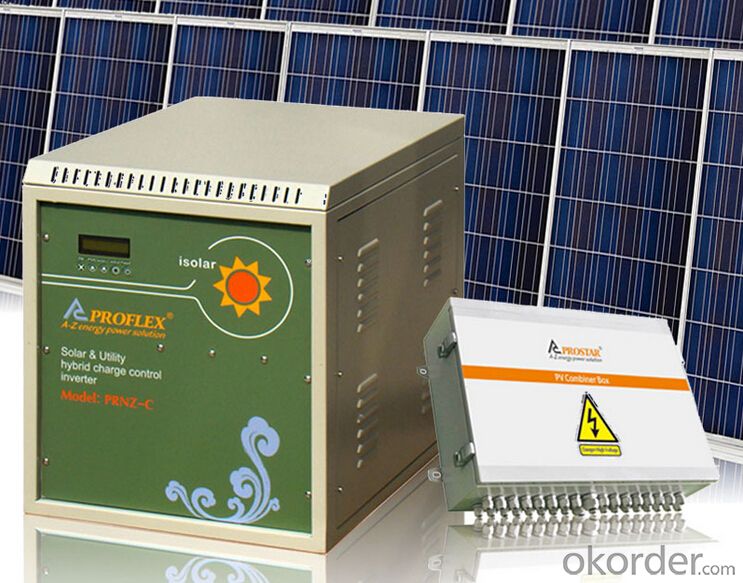
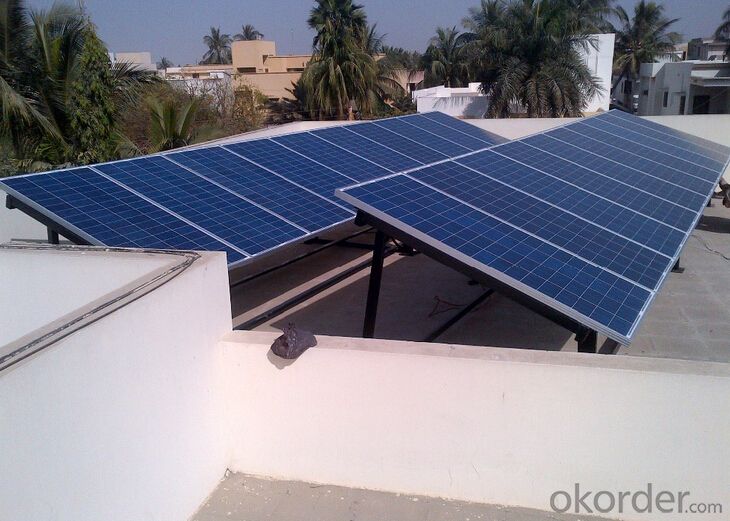
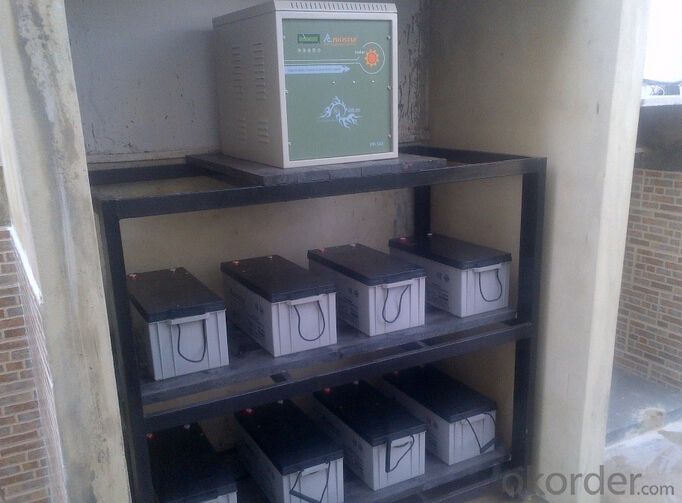
off grid sun power system
| Design Backup Time 5-6Hrs | |||
| Solar Module | Maximum power at STC(pm) | 150W solar panel(polycrystalline) 2pcs 75W,2pcs parallel | |
| Max.system charging voltage | 17.6V | ||
| Max.system charging current | 8.54A | ||
| Inverter | Output waveform | High frequency pure sine wave | |
| Continuous output power | 300W | ||
| Output voltage/frequency | 220V/50HZ | ||
| Charge controller | Syetem voltage | 12V | |
| Rated discharge current | 15A | ||
| Cabinet | Material | Steel box of zinc-plated and laquer-coated | |
| Battery | Type | Deep cycle | |
| System voltage | 12V | ||
| capacity | 1pcs 12V 100Ah | ||
| operating temperature | -20℃-+55℃ | ||
| Packing(CBM/KG) | Solar panel | 0.06CBM/20KGS | |
| Control box | 0.11CBM/21KGS | ||
| Battery | 0.02CBM/22KGS | ||
| Whole system | 0.19CBM/23KGS | ||
| Daily use reference | |||
| Name of load | Power | Working hours | Consumption |
| TV | 70W | 4hours | 280Wh |
| LAPTOP | 60W | 2hours | 120Wh |
| LIGHTING | 30W | 6hours | 180Wh |
| FAN | 50W | 6hours | 300Wh |
| TOTAL | 210W | 880Wh | |
FAQ
1. How do I decide which system is right for me ?
For protection from long outages, include a generator or solar panels in your Must solar system. Shorter outages can be handled by a battery-only system.
2. Where my system will be installed ?
Must solar systems are usually wall-mounted near a home's main electrical (circuit breaker) panel.
3. How do I install my system ?
A solar backup inverter is connected to a home electric system , we will supply detailed installation manual and videos for our customers .
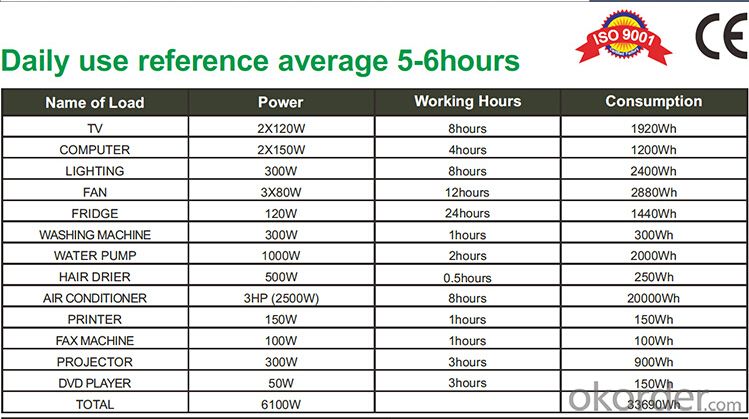

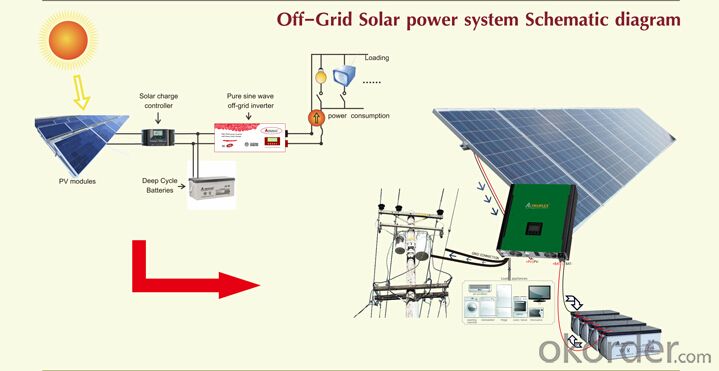
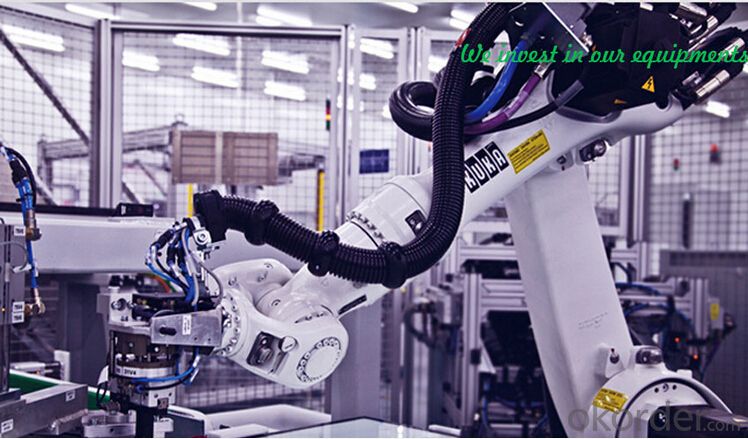


- Q: Can solar energy systems be used in areas with limited access to solar energy net metering programs?
- Yes, solar energy systems can still be used in areas with limited access to solar energy net metering programs. While net metering programs provide incentives and credits for excess energy produced by solar panels, solar energy systems can still generate electricity and provide significant savings even without net metering. By utilizing battery storage systems, excess energy can be stored and used during periods of low solar production, ensuring a reliable and uninterrupted power supply. Additionally, solar energy systems can contribute to reducing reliance on traditional energy sources and help mitigate environmental impacts, making them a viable option in areas without net metering programs.
- Q: Can solar energy systems be integrated with battery storage?
- Yes, solar energy systems can be integrated with battery storage. Battery storage allows excess solar energy generated during the day to be stored for use during times when the sun is not shining, such as at night or during cloudy weather. This integration enhances the reliability and efficiency of solar energy systems by providing a continuous and reliable source of electricity.
- Q: Can solar energy systems be used for powering off-grid eco-tourism destinations?
- Yes, solar energy systems can be an excellent choice for powering off-grid eco-tourism destinations. These systems harness the power of the sun to generate electricity, making them a sustainable and renewable energy source. Solar panels can be installed in remote areas, providing a reliable power supply for eco-tourism facilities such as lodges, campsites, or visitor centers. Additionally, solar energy systems can reduce reliance on fossil fuels, minimize carbon emissions, and align with the eco-friendly principles of such destinations.
- Q: How does the efficiency of solar panels vary across different climates?
- The efficiency of solar panels can vary across different climates due to several factors. One of the main factors is the amount of sunlight available in a particular region. Solar panels function by converting sunlight into electricity, so areas with higher levels of sunlight will generally have higher solar panel efficiency. In regions with a hot and sunny climate, such as deserts or tropical areas, solar panels tend to perform better. These areas receive a high intensity of sunlight, providing ample energy for the panels to convert into electricity. As a result, solar panels in these climates can achieve higher efficiency levels. On the other hand, in regions with cooler or cloudier climates, the efficiency of solar panels may be slightly lower. Cloud cover can reduce the amount of sunlight reaching the panels, impacting their overall performance. Additionally, colder temperatures can affect the efficiency of solar panels, as they typically operate more optimally in warmer conditions. However, it is important to note that solar panels are designed to work in various climates and can still generate electricity even in less sunny or colder regions. Advances in technology have enabled the development of solar panels that can absorb sunlight even in low-light conditions, increasing their efficiency in less favorable climates. Moreover, the efficiency of solar panels is not solely determined by climate but also depends on other factors such as the orientation and tilt angle of the panels, shading, and the quality of the solar cells used. Proper installation and maintenance can significantly impact the overall efficiency of solar panels, regardless of the climate. In summary, the efficiency of solar panels can vary across different climates due to factors like sunlight intensity, cloud cover, and temperature. While solar panels tend to perform better in hot and sunny regions, advancements in technology allow them to generate electricity even in less favorable conditions. Proper installation, maintenance, and consideration of other factors also play a crucial role in maximizing the efficiency of solar panels across various climates.
- Q: How do solar energy systems impact water quality?
- Solar energy systems have a minimal impact on water quality. Unlike fossil fuel-based power generation, solar energy does not produce any harmful pollutants or emissions that can contaminate water sources. This makes solar energy systems a cleaner and more sustainable alternative, ensuring that water quality remains unaffected by their operation.
- Q: Can solar energy systems be used in areas with limited access to the grid?
- Yes, solar energy systems can be used in areas with limited access to the grid. In fact, solar energy is particularly well-suited for such areas as it provides a decentralized and independent source of power. By installing solar panels and utilizing batteries, communities and individuals can generate and store their own electricity, reducing their reliance on the grid. This makes solar energy an excellent solution for remote locations, developing countries, and areas prone to grid outages or disruptions.
- Q: Are there any tax benefits for installing a solar energy system?
- Yes, there are several tax benefits for installing a solar energy system. One of the main benefits is the federal investment tax credit (ITC). The ITC allows homeowners and businesses to deduct a percentage of the cost of their solar energy system from their federal taxes. As of 2021, the ITC provides a 26% tax credit for residential systems and commercial systems. Additionally, some states offer their own tax incentives for solar energy installations. These incentives may include property tax exemptions, sales tax exemptions, or state tax credits. The availability and amount of these incentives vary from state to state, so it is important to research the specific incentives available in your area. Furthermore, installing a solar energy system can also increase the value of your property. Several studies have shown that homes with solar panels sell for a premium compared to homes without them. This increase in property value can have long-term financial benefits. It is recommended to consult with a tax professional or an expert in solar energy to fully understand and take advantage of all the tax benefits available for installing a solar energy system.
- Q: How much energy can a solar energy system generate?
- The amount of energy a solar energy system can generate depends on several factors, including the size and efficiency of the system, the location and climate conditions, and the amount of sunlight available. However, on average, a well-designed solar energy system can generate enough electricity to power a home or a building, and in some cases, even generate surplus energy that can be fed back into the grid.
- Q: Can solar energy systems be used for powering disaster relief operations?
- Solar energy systems have demonstrated their worth in disaster relief efforts, serving as a highly valuable means of supplying electricity to affected areas. The deployment of solar panels and solar-powered generators to regions struck by natural calamities enables the provision of a dependable and sustainable source of power. A key advantage of solar energy systems lies in their ability to operate autonomously, independent of the power grid. This proves especially beneficial in disaster situations where the power infrastructure may be damaged or utterly destroyed. Solar panels are capable of generating electricity even in remote locations, thereby allowing relief workers to access power for vital operations, such as communication, medical services, lighting, and water purification. Furthermore, solar energy systems offer cost-effectiveness and environmental friendliness. Once installed, solar panels require minimal maintenance, with sunlight serving as an abundant and free energy source. Consequently, there is no need for costly fuel deliveries or the utilization of expensive diesel generators, which can pose logistical challenges and financial burdens in areas ravaged by disasters. Additionally, solar power produces no harmful emissions, thereby reducing the impact on the environment and enhancing air quality in already vulnerable regions. Moreover, solar energy systems can be easily scaled up to meet the escalating power requirements of disaster relief missions. Temporary solar arrays can be rapidly established, and if necessary, additional panels can be incorporated into the system to generate more electricity. This flexibility empowers relief organizations to adapt and respond to the changing needs of the affected population. Nevertheless, it is crucial to acknowledge that solar energy systems may have certain limitations. Their effectiveness is contingent upon the availability of sunlight, which can be influenced by weather conditions or geographical factors. In regions with limited sunlight or during periods of cloud cover, the system's output may be diminished. To surmount this challenge, energy storage solutions, such as batteries, can be integrated into the system to store surplus energy for use during periods of low sunlight. In conclusion, solar energy systems have consistently demonstrated their reliability, cost-effectiveness, and sustainability in powering disaster relief operations. They offer electricity independently of the grid, mitigate environmental impact, and can be readily expanded. By harnessing solar power, relief organizations can efficiently deliver essential services to those in need, thereby facilitating a swift recovery process in disaster-stricken areas.
- Q: How does the temperature affect the performance of solar panels?
- The temperature has a direct impact on the performance of solar panels. Generally, higher temperatures can cause a decrease in the efficiency of solar panels. This is because as the temperature rises, the electrical conductivity of the materials used in the panels decreases, leading to a reduction in the conversion of sunlight into electricity. Additionally, higher temperatures can increase the resistance within the solar cells, resulting in a decrease in the overall power output. However, it is important to note that solar panels are designed to tolerate a wide range of temperatures and their performance can still be significant even in hot weather.
Send your message to us
150W Solar Panel Off Grid Sun Power System - Solar Energy Systems Canada
- Loading Port:
- Tianjin
- Payment Terms:
- TT OR LC
- Min Order Qty:
- 10 unit
- Supply Capability:
- 10000 unit/month
OKorder Service Pledge
OKorder Financial Service
Similar products
Hot products
Hot Searches
Related keywords
